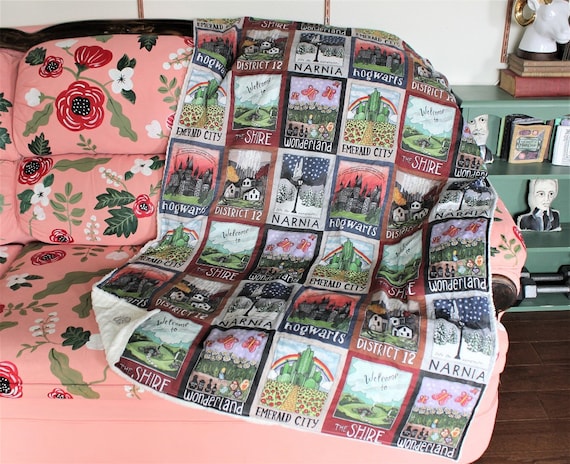The Trouble With Goats and Sheep |
Ah, The Trouble With Goats and Sheep. Question: have you ever wanted to hug a book?
Like, to wrap it up in your arms and just squeeze it, in the way those slightly
over zealous relatives would hug you when you were a child, so that you screwed
up your face and were sure you’d cracked a rib or three? I want to hug this
book. I want to hug it, and then like Cyrus Rose in Gossip Girl I want to say ‘not enough, not enough’ and hug it some
more. I loved it.
It’s set in the great English heatwave of 1976,
which, well it actually for reals was hot that summer, just ask any English
person who was around then. Not me. I wasn’t born but that summer was hot
enough that I’ve heard about it. We’ve not had a summer like that since. So I’m
told. Anyhow, it’s set that summer when Grace (aged 10) and her pal Tilly
decide to search the avenue for Mrs Creasy who has gone missing, and also for
God. I love that, there’s something just so endearingly innocent about it you
know, about these two children who think they can just Solve All The Mysteries.
They’re so serious about it, this isn’t just a game to them, this is not a way
to pass the time or Keep Out of Trouble. They actually believe 100% that both
God and Missing Mrs Creasy are can be found and they’re the ones who can do it
and it made me miss being 10 and the summer holidays and those endless days
stretching out in front of you and how actually grown up you actually thought
you were even though actually you obviously totally weren’t at all.
I am a fan of this book. Just FYI, in case that
wasn’t clear. It’s so British and so ordinary (and I get that it’s not often
that ordinary is used as a compliment
but trust me here when I tell you that the ordinariness of this book is part of
made me love it) and so good. And
funny. Laugh out loud funny. But at the same time it’s pretty serious too. If I
were writing a serious blog then I would talk about serious themes and whatnot
but we all know that that is not what I’m here for really, not much anyway.
What I will say is that whilst this book is fun and light and easy to read it
also makes a point and it’s a point about society and socially accepted norms
and not being a judgmental asshat and about how sometimes having something to
believe in, something to hold onto can be te thing you need to just keep putting
one foot in front of another and does it really matter, what that thing is?
Like that episode of Glee with Jesus in the grilled cheese kind of, a little bit, not
really. See, see how this happens when I try to do the serious? I end up
talking about singing teenagers. Not that anything is wrong, per se, with
singing teenagers. I love them. I love Glee unashamedly and unironically. I do.
Anyhow. This is so not the time to get
distracted by photographs of Blaine Anderson on the internet.
Grace and Tilly man, they’re so innocent and
yet somehow oddly wise, they see things and their commentary on those things is
the best thing ever and THEIR FRIENDSHIP THOUGH. They’re the best. The whole
avenue is the best, actually, and it’s kind of funny because it’s true you know,
this very English depiction of these neighbours who want to keep their own
lives private but at the same time cannot keep their own noses out of anybodies
business and the sense of community and support and mostly-friendly rivalry,
it’s real. We’ve all seen it. I loved each and every character in this book
because each and every one of them whilst not always the most likeable or the
most honest or the most sympathetic, felt real. You can see parts of them in
people you know or have known, it felt…I don’t know, it felt somehow
familiar?
Also, Angel Delight, there is a lot of Angel
Delight in this book, that most quintessentially British of desserts. I always
liked the butterscotch flavour the best.
Also wow has anybody ever used the word
‘summer’ as often as I’ve just used in this review. I suspect not.






